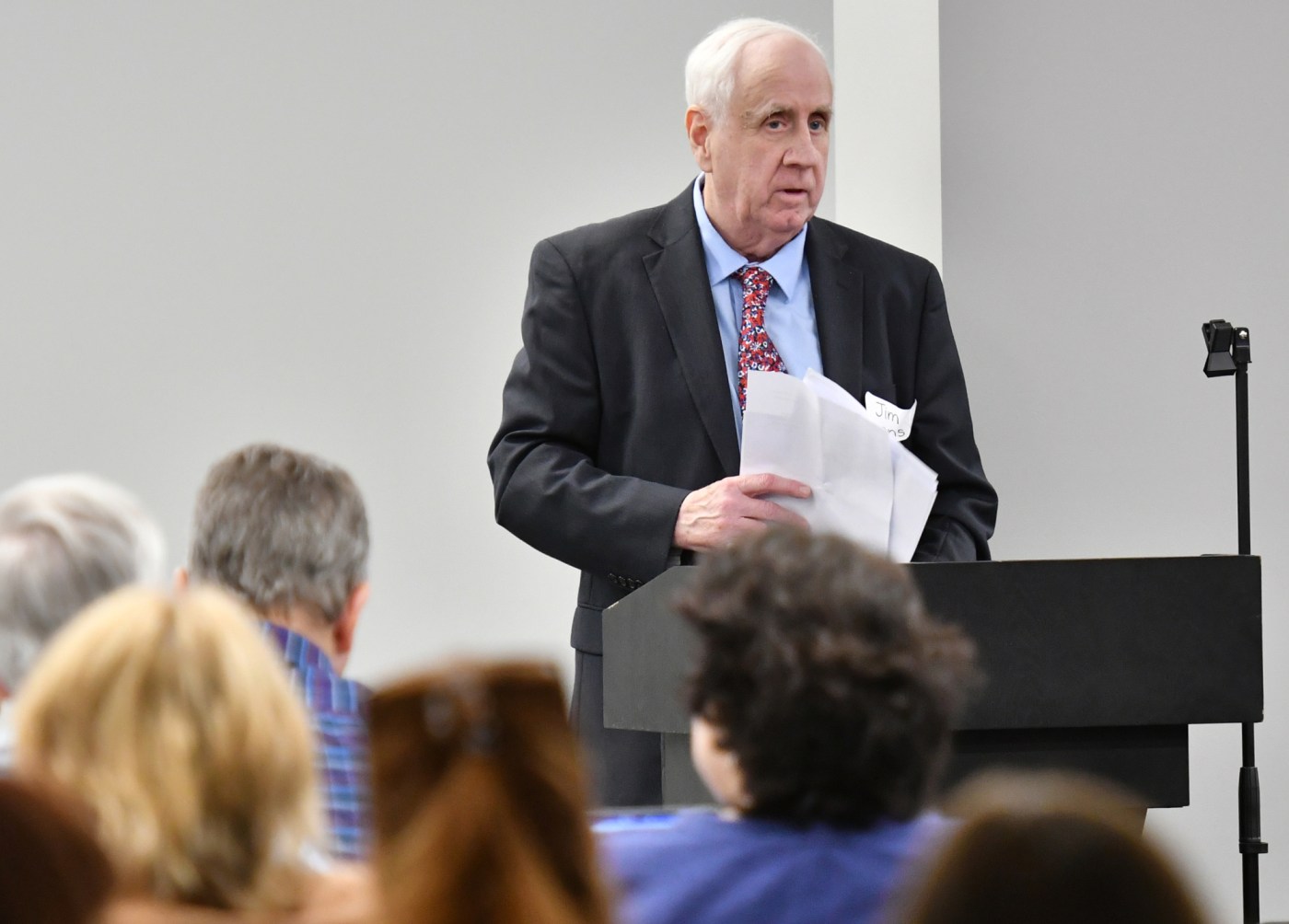
Former MassGOP Chair Jim Lyons’ legislative audit lawsuit dismissed by local judge
A Suffolk County judge dismissed a lawsuit from former MassGOP Chair Jim Lyons that asked a local court to declare a voter-approved law giving State Auditor Diana DiZoglio the power to audit the Legislature constitutional and invalidate an internal House rule on audits.
Suffolk County Superior Court Justice Kenneth Salinger’s ruling marks one of the first legal setbacks for audit law supporters who pursue private lawsuits to force an opinion on whether DiZoglio’s contentious efforts to investigate the two chambers pass constitutional muster.
In a nine-page ruling issued Monday, Salinger said Lyons “does not have legal standing” to bring claims that an internal rule adopted by the House in the fall and updated in February directly undermines the intent of the voters who supported the audit law in November.
“Mr. Lyons alleges no facts suggesting that he suffered or likely will suffer any personal harm as a result of a violation of any legal duty owed to him, and he has not identified any applicable exception to these general requirements of standing,” Salinger wrote. “He therefore does not have standing to challenge House Rule 85A, to seek a declaration as to whether the voters’ amendment to the auditor’s statutory authority is constitutional, or to obtain any other relief.”
Lyons said he plans to appeal the ruling in Superior Court and the state’s highest court, the Supreme Judicial Court.
“If a voter doesn’t have standing, who does? The people voted 72% to audit the Legislature and our elected officials decided they were going to change the rules. That is simply wrong,” Lyons told the Herald. “Now, the judge has made his ruling based on standing, and we’re going to aggressively make the argument that we believe we do have standing and this is exactly the process that was set up for the voters if the Legislature isn’t doing what they’re supposed to do.”
A spokesperson for House Speaker Ron Mariano declined to comment on the ruling.
The lawsuit was filed as DiZoglio is still trying to convince Attorney General Andrea Campbell to greenlight legal action against the Legislature to force them to comply with the audit law and as other outside groups are weighing lawsuits to do the same.
Lyons’ legal challenge largely focused on an internal rule the Massachusetts House first approved last year.
House lawmakers voted nine days after the November election to amend their own rules to direct the chamber’s business manager to hire a private auditing firm recommended by the state auditor to conduct an “outside, independent financial audit of the House financial accounts.”
Representatives voted again in February to revise the rule to remove the business manager from the process and instead have the House Committee on Operations, Facilities, and Security retain a private auditing firm recommended by the auditor.
In his initial complaint filed in December, Lyons claimed that the amendment to the House rule “does not allow the auditor to audit the Legislature.”
“Instead, it directs the administrative officials of the House to request an audit from the auditor, who is then allowed to select a neutral private firm which the House will thereafter employ to conduct an audit,” the former Republican Party chair said in a court filing. “The rule amendment does not anticipate or allow the auditor to directly review financial information about or from the Legislature.”
Lyon’s argument was similar to DiZoglio’s own gripe with the rule change.
In a string of social media posts in November, DiZoglio said House Democratic leaders were asking members to “strip away” her office’s ability to conduct an independent audit.
“Since you’ll still control how much you pay for the audit, what you will allow their scope to be, and what you will allow them to examine or not examine — you’ll be giving yourself control over every aspect of the process which will be overseen by you, and not our office, exempting yourself from oversight — yet again,” she said.
Rep. Danielle Gregoire, who chaired the House Rules Committee last session, said the change demonstrated lawmakers’ “renewed commitment to upholding and respecting the will of the voters.”
“With this proposed rules change, we seek to ensure that any audit pursuant to the passage of question one will be a professional audit, not a political one,” the Marlborough Democrat said shortly after lawmakers approved the amended rule.
Lyons said the rules change “directly undermines the intent of the voters in allowing the auditor to directly audit the Legislature and expressly confirming her authority to do so.”
Lawyers for Lyons also tried to persuade Salinger that he had standing to bring the lawsuit.
“Amongst other things, he has the right to have his vote counted and not be nullified. He has the right to have a law he supported and campaigned for, which passed the ballot commandingly, become law in accordance with Article 48 (of the state constitution). He has the right to not have his vote nullified by legislative machinations,” an attorney for Lyons wrote in court documents.
But Salinger said Lyons does not have legal standing to bring a lawsuit just because he voted for and remains a proponent of the ballot question authorizing audits of the Legislature.
Legal standing to protect voters’ rights arises in limited circumstances not relevant in Lyons’ lawsuit, Salinger said.
“For example, the first ten signers of an initiative or referendum petition have standing to bring suit to ensure that the petition is properly presented to voters,” Salinger said. “This line of cases is not relevant because Question 1 has already been passed by the voters.”
The judge also said voters have legal standing to sue to have their votes be counted and given equal weight, like when a voter in a district that has a disproportionately large population has standing to challenge the apportionment.
But Salinger said that, too, does not apply in this case because the lawsuit “is not about whether Mr. Lyons’ vote counted or was diluted.”
“Permitting any supporter of a successful ballot initiative to bring suit at any time to enforce the resulting law would be inconsistent with the requirements of standing discussed above,” Salinger wrote in his ruling.


